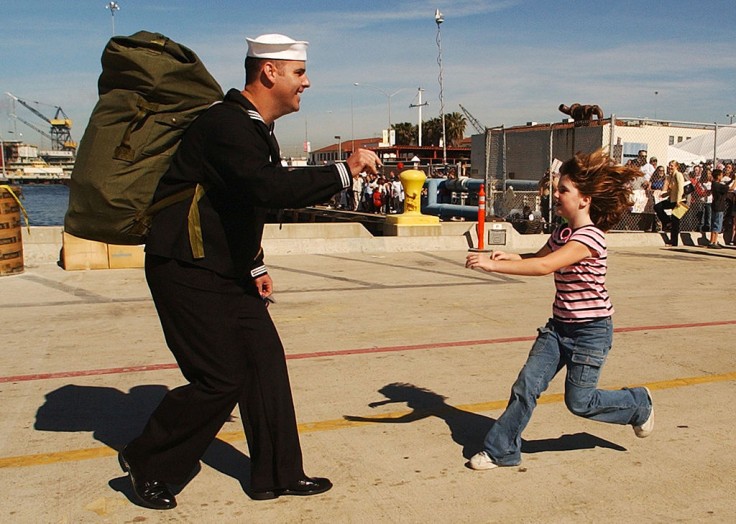
Military kids have faced the Christmas holidays without their parents, who are serving far away, and they expressed their struggles and sadness over it.
Brianna Keilar of CNN got to interview children with military parents who are deployed and away from them over the holidays. When she faced them, one of the families welcomed her with a pillow fight.
Twenty-two-month-old Leo hit her playfully with a pillow, which he calls "Daddy pillow," a representation of his father as he is away, currently deployed in Qatar.
Children and families with military parents can relate as it can also be a "Mommy pillow" if the mother is the one serving away from home. These pillows are popular for military kids as they depict their parents in "portable, squeezable and, most importantly, washable form," used for cuddling and pillow fights.
Leo's father worked in the Air Force and was away for Christmas while Leo and his brother, Hiram, 5, and sister, Nora, 7, are in the stateside with their mother, Kristen.
When asked what they miss the most when daddy is gone, Hiram said he misses the moments when dad tickles them.
Top concern of service members is time with family
Many military families have spent Christmas and will spend the rest of the holiday season apart.
According to the Pentagon, an estimated 200,000 service members are currently deployed overseas, with nearly 90,000 in Europe. The numbers are more than what the country has seen in almost two decades, and this is because of the buildup of U.S. troops supporting NATO after Russia invades Ukraine.
Moreover, it has been reported that even inside the United States, many military families made the difficult choice to live separately. Service members sacrifice and stay at new assignment locations alone while their wives and children remain in a different state to accommodate the kids' education, healthcare, and the career of the non-military spouse.
In the most recent annual military family lifestyle survey by the Blue Star Families, the top concern of active-duty service members, the National Guard, and Reserve families is the amount of time they spend away from their families.
This data is utilized by lawmakers and the Department of Defense in drafting policy decisions that affect military families.
What military kids are saying
For Nora, she wants to let her dad, who is in Qatar, know that she loves him and that she knows that he loves them. However, she struggles, actually "fixated" on the fact that the family will not be able to share all the special occasions with their father. Not only can he not celebrate Christmas with them but also her birthday and her brothers' birthdays. When asked if she ever got used to it, she replied no.
Kailey, 17, was part of the children of the Smith family, whom Keilar was also able to interview. They are also three in the family, with her younger brother Owen, 16, and their youngest, Ollie, 8. Their father is a Coast Guard commander and a rescue helicopter pilot who they describe as "does a lot of cool stuff and ... saves people from the ocean."
Their dad is "geo-baching," a military term for "geographic bachelor." He is currently assigned in San Francisco while his family stays behind, so Kailey need not have to start at a new school, and their mom cannot be interrupted with her career.
Kailey shared that what she missed the most with having her father around was having two sides of opinions and perspectives when she was going through issues. But more than the opinions and advice, she misses getting hugs from her father.
"I knew my dad was saving people. I knew that he was flying out and he had night calls, he had duty. I knew that was happening but I didn't really know to the extent what he was doing. It just hurt because I didn't understand ... why he was gone," Kailey recalled, stating that it was so hard to accept her dad being always away when she was younger.
Good for Kailey and the other kids interviewed; none of them were struggling mentally, only emotional ones like sadness as they miss and long for the presence of their fathers.
Unfortunately, for other military kids, especially military teens, a "concerning" percentage are struggling with mental health.
According to the National Military Family Association, the majority of military teens, 63 percent, indicated only a moderate level of mental well-being, and 28 percent reported low mental well-being. More alarming is that there were more who shifted from high levels of mental well-being to moderate.
As a military teen who is 15 years old admitted, his biggest struggle is with his mental health.